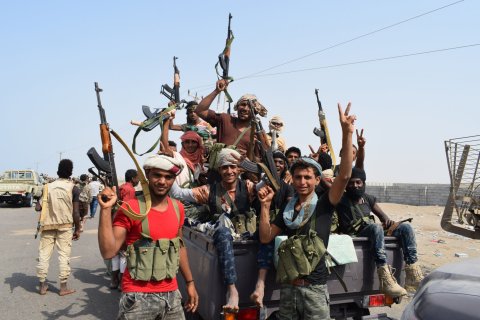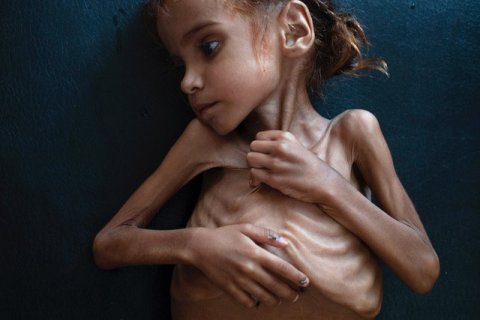It has emerged that mothers in a crisis hit Yemen, are going through the most traumatic period of their lives as they are faced with a heart-wrenching choice of deciding which of their children eats to survive.
The parents according to experts, are leaving their children to starve as a result of food shortages in the Asian country, regarded as the world’s worst humanitarian crisis.
The catastrophic phenomenon has continued to take a deadly toll on the nationals of Yemen. Children, according to reports, resort to picking expired food products from the garbages to fill up themselves for survival.
Though the warring parties have pledged a ceasefire, millions of people are struggling to survive over the winter.
Action Against Hunger’s country director, Valentina Ferrante, said: ‘We are very much aware that the situation right now is catastrophic.
‘If a family does not have the necessary economic resources to feed the entire family then they will select who to feed.
‘Sometimes you get up to a point where a mother is literally forced not to feed certain members of the family, most probably the youngest one.’
She added that families often had four or five children and many had lost their homes and livelihoods because of three years of violence.
An estimated two million people have been internally displaced and around 60,000 civilians killed. It is now been called the world’s worst humanitarian disaster and pushed 14,000,000 people to the brink of famin.
They are just desperate and hopeless,’ Ms Ferrante told Metro.co.uk.
‘People are trying to kill themselves because they are so desperate. The war is having a huge impact on people’s mental stability.
‘They are constantly on edge and the effect on children is terrible. For young children, all they have ever known is war.’ War has ravaged Yemen since March 2015, when the Iranian-backed Houthi group occupied northern Yemen, forcing the government into exile.
Since then a Saudi-led coalition supporting the Yemen government has waged a devastating air campaign with an average of one strike every 90 minutes.
Experts say there have been war crimes happening on both sides.
Saudi Arabia has come under heavy criticism in recent months, with experts saying some 49% of air strikes have hit non-military targets.
Other tactics include the bombing of a bus carrying school children, and another attack that targeted a wedding.
The Houthi group have been accused of using hi-tech missiles and using civilians as human shields. They have also scattered landmines inside abandoned schools, along roadsides and in the desert sands – primed to go off at the lightest touch.
The conflict and ensuing economic collapse have left over 50% of the population in urgent need of aid. Government workers haven’t been paid for years and many trained doctors have left.
Food prices are soaring and the war is preventing a lot of aid and international imports from reaching besieged areas, especially around the key port of Hodeida.
On December 13, a ceasefire was agreed between Yemen’s government and Houthi Shiite rebels. One of the key priorities is opening up the lifeline port, where 70% of aid and food comes through.
The ceasefire remains shaky with both sides accusing the other of violations in Hodeida province.
This week, the United Nations arrived in the port city tasked with monitoring the ceasefire and ensuring that fighters leave to allow aid in.
Ms Ferrante said the biggest challenge in delivering humanitarian aid was gaining safe access to conflict areas being hit by airstrikes.
Action Against Hunger has 300 people working to deliver food aid to the stricken and said she hoped the peace process that began in Sweden would last.
She added: ‘The ceasefire is something positive and I truly hope it is being heard by the people of Yemen to give them some hope.
‘Yemenis have got to a point where they just want stability.
‘They are not interested in the war or who is going to be the winner. They just want peace.’
Source: Metro.co.uk










